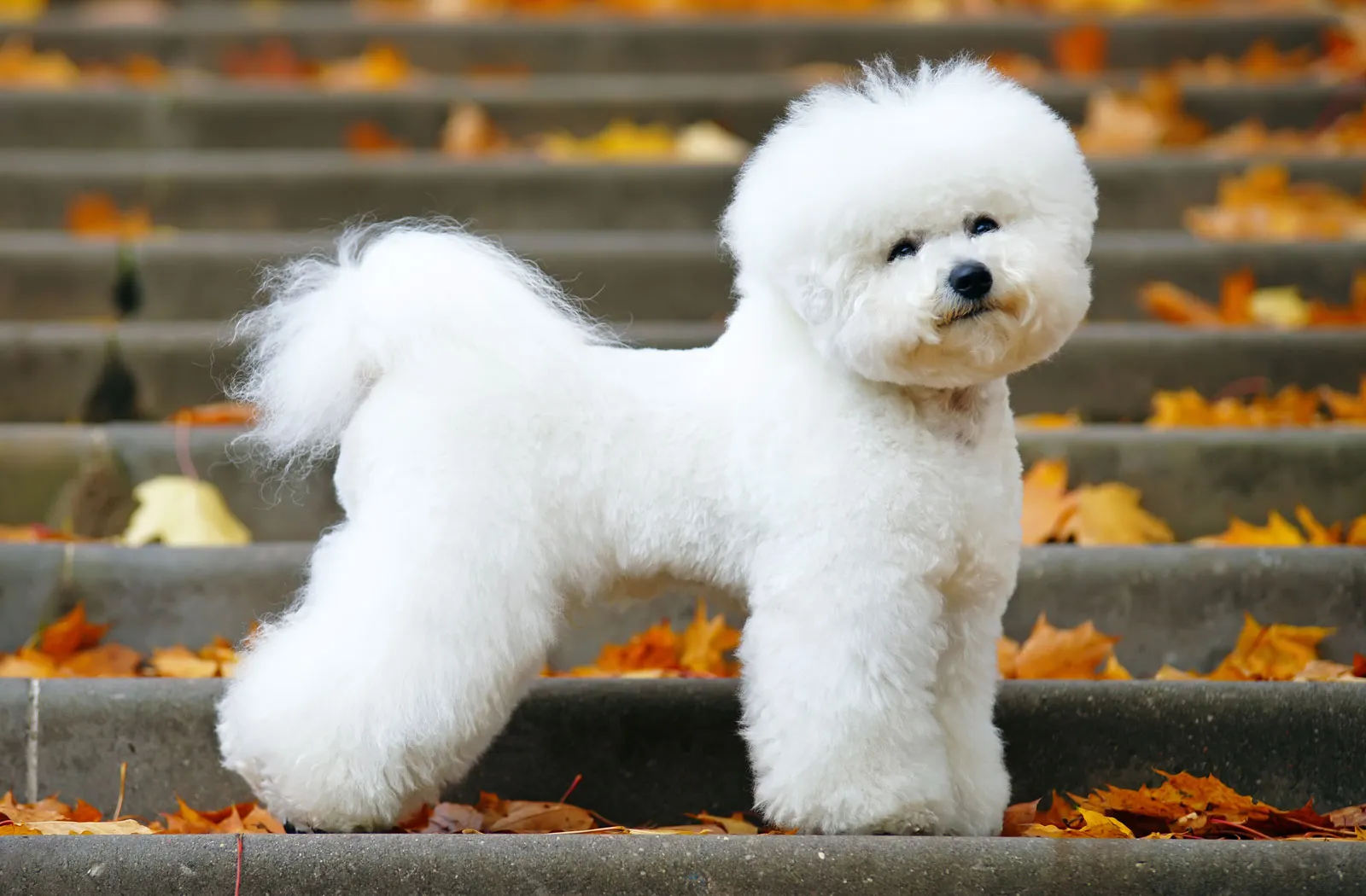🐶 Bichon Frise: Complete Care & Ownership Guide
📌 Breed Overview
- Origin: Mediterranean (popularized in France and Spain)
- Group: Toy / Companion
- Size: Small
- Weight: 10–20 pounds (4.5–9 kg)
- Height: 9–11 inches (23–28 cm)
- Lifespan: 12–15 years
- Coat: Soft undercoat with a curly, puffy outer coat
- Color: Predominantly white
🧠 Personality and Temperament
Bichon Frises are known for their cheerful, affectionate, and playful nature. They are:
- Great with kids and other pets
- Highly social and friendly
- Alert, but not yappy
- Adaptable to apartment or house living
- Often called “happy-go-lucky” dogs
These dogs thrive on human interaction and may develop separation anxiety if left alone for long periods.
🏡 Is Bichon Frise Suitable for Apartment Living?
✅ Absolutely yes!
Bichons:
- Are small in size and don’t require a yard
- Have moderate exercise needs, fulfilled with indoor play or short walks
- Don’t bark excessively, making them great for shared walls or condo environments
- Are clean, smart, and polite – all perfect traits for city living
✂️ Grooming Needs
Grooming is one of the most demanding aspects of owning a Bichon Frise.
- Brushing: Daily brushing is recommended to avoid tangles and matting
- Professional grooming: Every 4–6 weeks
- Bathing: Every 2–4 weeks
- Eye care: Wipe eyes regularly to prevent tear stains
- Ears: Check and clean weekly
- Nail trimming: Every 2–3 weeks
Their hypoallergenic coat is great for allergy sufferers, but it requires dedication.
🏃 Exercise Requirements
Bichon Frises are playful but not overly energetic.
- Daily walks: 20–30 minutes
- Playtime: Indoor fetch or interactive toys
- Dog parks: Great for socializing
They are prone to boredom if not mentally stimulated – puzzle toys and short games help.
🎓 How to Train a Bichon Frise
Bichons are intelligent, eager to please, and respond well to consistent, positive training. Here’s how to train your Bichon Frise effectively:
🐾 1. Start Early
- Begin training and socialization as early as 8 weeks old.
- Expose your pup to new people, environments, and other animals to build confidence.
🐾 2. Use Positive Reinforcement
- Bichons respond best to praise, treats, and gentle encouragement.
- Avoid punishment — it can make them fearful or stubborn.
🐾 3. Keep Training Sessions Short and Fun
- 5–10 minute sessions, 2–3 times a day work best.
- Mix training with play to keep it engaging.
🐾 4. Crate Training
- Helps with housebreaking and offers a safe space for your dog.
- Keep the crate positive – never use it for punishment.
🐾 5. Potty Training Tips
- Be consistent with feeding and potty times.
- Reward immediately after they go outside.
- Clean accidents thoroughly to prevent repeat behavior.
🐾 6. Teach Basic Commands
Start with essentials:
- Sit
- Stay
- Come
- Leave it
- Down
Once these are mastered, progress to more advanced commands or tricks.
🐾 7. Socialization
- Arrange playdates, take walks in different settings, and visit pet-friendly stores.
- Bichons are naturally social, but early exposure helps prevent shyness or barking at strangers.
🐾 8. Address Barking
- Bichons may bark when excited or lonely.
- Teach the “Quiet” command and reward calm behavior.
- Don’t unintentionally reinforce barking by giving attention when they bark.
🐾 9. Mental Stimulation
- Use puzzle feeders, interactive toys, and training games to keep their minds active.
- Rotate toys regularly to keep things fresh.
🐾 10. Enroll in Puppy Classes
- Group training can improve obedience and social skills.
- It also strengthens your bond with your Bichon and helps you stay consistent.
🍽️ Feeding Guide
- Feed high-quality kibble for small breeds
- Portion: ½ to 1 cup per day, divided into 2 meals
- Avoid overfeeding – prone to weight gain
- Treats should not exceed 10% of daily intake
- Fresh water must always be available
Ask your vet for the right amount based on your Bichon’s age, weight, and activity level.
❤️ Health and Common Issues
Bichon Frises are generally healthy but can be prone to:
- Allergies (especially skin-related)
- Dental issues – regular teeth brushing is essential
- Luxating patella (slipping kneecaps)
- Bladder stones
- Eye conditions (cataracts, tear staining)
Regular vet checkups, vaccinations, and dental cleaning will keep them in top shape.
🛏️ Living With a Bichon Frise
- Great for singles, seniors, and families
- Enjoy being indoors and close to their humans
- Don’t like being left alone for too long
- Not great outdoor dogs – they prefer cozy indoor life
- Thrives on attention and companionship
📋 Checklist for New Bichon Owners
✅ Dog bed
✅ Stainless steel food & water bowls
✅ Brush and comb
✅ Puppy shampoo & ear cleaner
✅ Toys and chews
✅ Crate or playpen
✅ Grooming appointments
✅ Regular vet care
🐾 Final Thoughts
The Bichon Frise is a loving, loyal, and intelligent dog that fits beautifully into many lifestyles, especially urban and apartment living. With proper grooming, training, and affection, your Bichon will become a joyful and gentle companion for many years.

